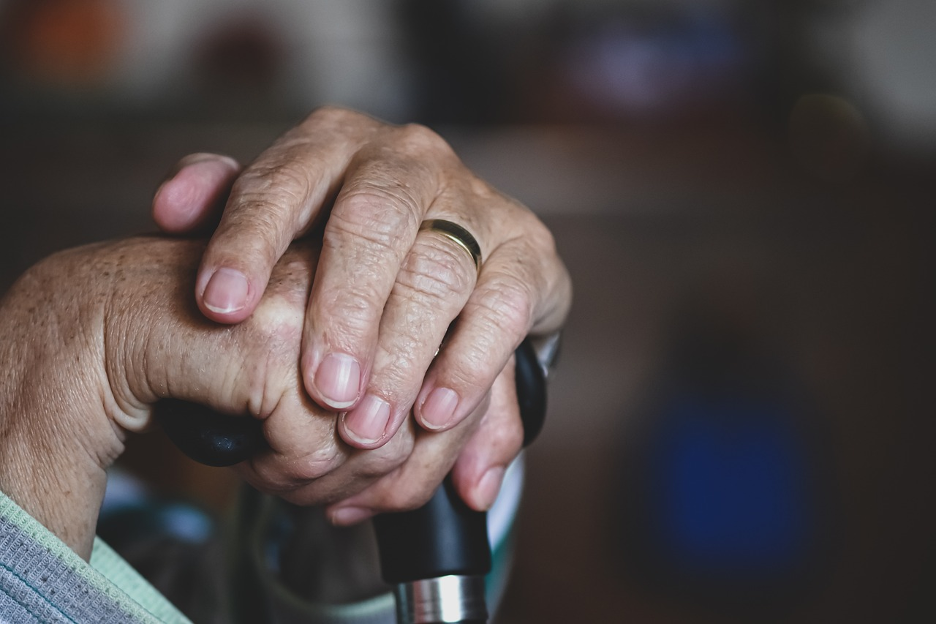Improving family dynamics takes time, patience, and consistent effort. Therapeutic techniques such as active listening, setting boundaries, and practicing mindfulness...
Is your marriage struggling to find balance and harmony? Many couples face challenges at various stages of their relationship. Seeking professional help can help address issues and restore emotional connection. Let’s explore how therapy sessions can make a positive difference.
Why Consider Marriage Counseling?
Marriage counseling provides an opportunity for couples to address deep-rooted issues in a safe and supportive environment. Marriage Counseling offers an objective perspective on relationship challenges, which often include communication breakdowns, trust issues, or differing expectations. With a professional’s guidance, couples can learn new ways to communicate and resolve conflicts. This process helps both partners develop a better understanding of each other’s needs and emotions. Rather than simply treating the symptoms of a troubled relationship, therapy helps address the underlying causes. In many cases, difficulties stem from unspoken concerns or unaddressed emotional needs. A trained expert can guide both individuals toward a deeper connection by fostering healthy communication. (more…)
PTSD, Social Issues, Veterans / 02.12.2024
The Role of Mental Health Support in Preventing Veteran Homelessnes
Veterans returning from service often carry the invisible burdens of their experiences, making the transition to civilian life a challenging journey. Mental health issues such as post-traumatic stress disorder (PTSD), depression, and anxiety can make it difficult for many veterans to reintegrate, often leading to unemployment, relationship struggles, and, for far too many, homelessness. While the causes of veteran homelessness are complex, a major factor is untreated or inadequately treated mental health issues. Addressing these mental health needs through timely and effective support is essential in reducing homelessness among veterans.
The Connection Between Mental Health and Homelessness
Research has shown that veterans are at a significantly higher risk of homelessness than the general population. According to the U.S. Department of Housing and Urban Development (HUD), veterans make up a sizable portion of the homeless population, with mental health challenges being one of the primary contributors. Conditions like PTSD and depression often stem from experiences in combat zones, which can include exposure to violence, the loss of fellow soldiers, and extended periods of high stress. These mental health conditions not only create emotional and psychological distress but can also disrupt a veteran’s ability to secure stable employment, form supportive relationships, and engage with their community. For instance, untreated PTSD can lead to symptoms such as hypervigilance, sleep disorders, and emotional numbness, all of which can interfere with daily life. Without treatment, veterans may find themselves isolated, unable to hold a steady job, and financially insecure—factors that often lead to homelessness. (more…)
You chose the family’s financial stability and well-being when you decided to become a stay-at-home mom. Statistics suggest that 25% of mothers left their jobs in 2023 to look after their children, compared to just 15% in 2022.
Due to their lack of work history, many stay-at-home mothers are misinformed that they’ll be automatically eligible for Social Security Disability Insurance (SSDI). Unfortunately, stay-at-home parents can only access SSDI based on their spouse/ex-spouse’s work credits or medical history.
In this blog post, we’ll discuss your eligibility and the possibility of getting SSDI benefits.
Overview of Social Security Disability Insurance (SSDI)
SSDI is a program by the federal government that offers financial assistance to citizens who are unable to work. Ideally, you’ll only be eligible if you have a qualifying disability that prevents you from getting a job. Over 7 million Americans are currently being paid under this scheme. Unlike other Social Security benefits, SSDI is usually based on the following:- Applicant’s or their spouse’s work history
- Accumulation of work credit by paying taxes
- A qualifying disability that prevents you from getting a job
Geriatrics, Social Issues / 09.11.2024
Empowering Seniors: Tips for Community Engagement and Support
Key Takeaways
- Learn practical ways to support seniors, focusing on engagement, safety, and well-being.
- Understand the impact of community involvement on seniors' mental and physical health.
- Discover practical tips for fostering a supportive and inclusive community for elderly individuals.
- Understanding the Needs of Seniors
- Creating a Safe Environment
- The Role of Social Activities
- Encouraging Physical Wellness
- Importance of Nutrition
- Utilizing Technology for Connection
- Benefits of Intergenerational Programs
- Leveraging Community Resources
Nursing, Race/Ethnic Diversity, Social Issues / 05.10.2024
Culturally Competent Nursing Care: Meeting the Needs of Diverse Patient Populations
In today's increasingly globalized and multicultural world, providing culturally competent nursing care is essential to delivering high-quality healthcare to diverse patient populations. As the United States and many other nations become more diverse, nurses must be equipped to understand and address the unique needs of individuals from different cultural, ethnic, and linguistic backgrounds. Culturally competent care not only improves patient outcomes but also fosters trust, respect, and effective communication between healthcare providers and patients.
1. Understanding Cultural Competence in Nursing
Cultural competence refers to the ability of healthcare providers to recognize and respect the cultural differences that influence how patients experience illness, access care, and respond to treatment. For nurses, cultural competence involves a combination of knowledge, attitudes, and skills that enable them to deliver care that is sensitive to the cultural preferences, beliefs, and values of their patients. To be culturally competent, nurses must be aware of their own biases and assumptions and continuously educate themselves about the diverse cultural backgrounds of the patients they serve. This awareness helps nurses avoid making assumptions based on stereotypes, allowing them to deliver individualized care that meets the specific needs of each patient. (more…)
PT-Rehabilitation, Social Issues, Telemedicine / 22.08.2024
Rehabilitation Trends Empowering Home Care for Recovering Patients
Recovering from surgery or a significant injury is a journey that’s increasingly taking place in the comfort of home. The idea is simple but powerful: familiar surroundings, combined with the right tools and support, can significantly enhance the recovery process.
Recent advancements in rehabilitation have made home care more effective than ever. From innovative mobility equipment to telehealth services that bring therapists into the living room, these trends are reshaping how we approach recovery. This post explores how these trends are making home care a more viable and often preferable option for those on the road to recovery.
The Rise of Home-Based Rehabilitation
Why Home Care is Gaining Popularity
The appeal of home-based recovery goes beyond comfort - it is also about the psychological benefits. Home is where people feel most relaxed and supported, which can accelerate the healing process. Studies have shown that lower stress levels, often experienced at home, contribute to faster recovery. The ability to maintain daily routines in a familiar environment provides both physical and emotional comfort, motivating patients to stick with their recovery plans.Impact of COVID-19 on Home Rehabilitation
The COVID-19 pandemic accelerated the shift towards home-based care. With hospitals under strain and concerns about exposure to the virus, many turned to home care as a safer option. This shift highlighted that with the right support and equipment, such as a rotating bed is a lifesaver for those with limited mobility, effective rehabilitation can indeed happen at home. Telehealth services have played a crucial role in this transition, allowing patients to consult with healthcare providers remotely. This not only reduces the risk of infection but also offers the flexibility to receive care at convenient times, making home recovery more accessible. (more…)
Promoting community health is a noble endeavor that goes beyond the walls of hospitals and clinics. It’s about creating an environment where everyone has the opportunity to live their healthiest life. From the bustling streets of big cities to the quiet lanes of small towns, community health is a vital aspect that affects us all, directly or indirectly. Whether you're a health professional, a student, or just someone passionate about making a difference, there are numerous ways you can contribute to the health and well-being of your community.
Improving community health requires a collective effort and a holistic approach, addressing not just physical health but also mental, environmental, and social factors. It's about building a culture of wellness that supports healthy choices and provides access to resources that encourage a healthy lifestyle. Let's explore some effective ways you can help promote community health, making a positive impact on the lives of those around you.
(more…)
Alzheimer's - Dementia, Social Issues / 27.06.2024
Dealing with Dementia Care at Home: Strategies for Caregivers
Caring for a loved one with dementia at home can be challenging. As a caregiver, it is important to educate yourself on strategies to provide the best care while also taking care of your own wellbeing. Here are some helpful tips for caregivers managing dementia care at home.
As dementia progresses, people can become disoriented and confused. To limit risks, make sure your home environment is safe and comfortable. Reduce clutter, improve lighting, install handrails and non-slip mats in bathrooms. Lock away medications and toxic products. Consider monitoring systems like motion sensors if the person wanders. Also, ensure favorite belongings and familiar objects are around to provide comfort.
(more…)
Understand the Stages of Dementia
The first step is understanding the different stages of dementia - mild, moderate and severe. Knowing what stage your loved one is in will help you plan care accordingly. In the early stages, maintaining independence may be possible with reminders and the help of home caregivers such as home care services in Greensboro, NC. In the later stages, full-time care is usually required for basic activities like eating, bathing and dressing. Understanding the dementia stage will help you adapt care needs. Create a Safe, Comfortable Environment
Create a Safe, Comfortable Environment
As dementia progresses, people can become disoriented and confused. To limit risks, make sure your home environment is safe and comfortable. Reduce clutter, improve lighting, install handrails and non-slip mats in bathrooms. Lock away medications and toxic products. Consider monitoring systems like motion sensors if the person wanders. Also, ensure favorite belongings and familiar objects are around to provide comfort.
(more…)
Aging, Social Issues / 12.05.2024
The Ultimate Guide to In-Home Senior Care
Supporting a family member to age comfortably at home can range from regular check-ins at a parent's place to aiding a partner in daily tasks like bathing and cooking, along with managing medications and giving injections. No matter the extent of your assistance, the following suggestions can enable your loved one to stay at home comfortably for as long as possible.
Create a plan
Balancing immediate needs with future considerations is crucial. Managing day-to-day tasks alongside medical appointments and medication renewals is essential, all while considering potential challenges related to your loved one's health and age. While you can't predict everything, proactive planning allows for better emergency responses. Don't handle it solo; create a support network with family and friends.- Identify responsibilities and reach agreement. Inquire about each team member's willingness to aid in the person's care. Even those at a distance can manage tasks like bill payments, medication orders, and arranging medical appointments. Collaborate on a strategy with them.
- Assess your own capabilities honestly. Determine what tasks you're comfortable handling. If direct caregiving makes you uneasy, such as assisting with bathing, explore if another team member can take over or discuss the possibility of hiring professional help.
- Document the plan comprehensively. Having a written plan ensures clarity among all team members, including the care recipient, thereby minimizing confusion. Keep in mind that the plan may need adjustments over time; update it accordingly.
Mental Health Research, Social Issues / 21.03.2024
Your Dating Life: Should You Disclose You’re Going to Therapy?
 Dating is a process in which you get to know another person. If you connect both emotionally and romantically, the relationship could become permanent. However, honesty is needed for this relationship to last. For some people, this might become an issue.
If you have taken part in a residential mental health treatment program, should you share that with the other person? If so, when should this be done? The main thing to consider is when this level of intimacy is valued. Don't overshare on a first date, but don't wait until you have been in the relationship for a few years before sharing. When might this be?
(more…)
Dating is a process in which you get to know another person. If you connect both emotionally and romantically, the relationship could become permanent. However, honesty is needed for this relationship to last. For some people, this might become an issue.
If you have taken part in a residential mental health treatment program, should you share that with the other person? If so, when should this be done? The main thing to consider is when this level of intimacy is valued. Don't overshare on a first date, but don't wait until you have been in the relationship for a few years before sharing. When might this be?
(more…)
Cancer Research, Social Issues / 05.03.2024
Strategies for Caring for Your Wife with Cancer in the Comfort of Home
Caring for a spouse battling cancer presents unique challenges, often requiring a delicate balance of physical, emotional, and logistical support. Providing care in the comfort of a home can offer a sense of familiarity and warmth during a challenging time.
The aim must be to create a supportive environment, manage medical needs, and seek emotional support. It will empower spouses as they embark on this journey of care and compassion.
 According to the AACR Cancer Progress Report, cancer survivors have significantly improved from 50 years ago. It constituted only 1.4 percent of the US population earlier, but they have increased considerably. The number of cancer survivors is estimated to grow to 26 million by 2040. All they need is proper treatment and support to battle it.
In this article, we'll delve into effective approaches and available aids for spouses managing the intricate challenges of caring for cancer patients. These insights and resources aim to enhance the quality of life for their beloved partners while safeguarding their own health and wellness.
According to the AACR Cancer Progress Report, cancer survivors have significantly improved from 50 years ago. It constituted only 1.4 percent of the US population earlier, but they have increased considerably. The number of cancer survivors is estimated to grow to 26 million by 2040. All they need is proper treatment and support to battle it.
In this article, we'll delve into effective approaches and available aids for spouses managing the intricate challenges of caring for cancer patients. These insights and resources aim to enhance the quality of life for their beloved partners while safeguarding their own health and wellness.
 According to the AACR Cancer Progress Report, cancer survivors have significantly improved from 50 years ago. It constituted only 1.4 percent of the US population earlier, but they have increased considerably. The number of cancer survivors is estimated to grow to 26 million by 2040. All they need is proper treatment and support to battle it.
In this article, we'll delve into effective approaches and available aids for spouses managing the intricate challenges of caring for cancer patients. These insights and resources aim to enhance the quality of life for their beloved partners while safeguarding their own health and wellness.
According to the AACR Cancer Progress Report, cancer survivors have significantly improved from 50 years ago. It constituted only 1.4 percent of the US population earlier, but they have increased considerably. The number of cancer survivors is estimated to grow to 26 million by 2040. All they need is proper treatment and support to battle it.
In this article, we'll delve into effective approaches and available aids for spouses managing the intricate challenges of caring for cancer patients. These insights and resources aim to enhance the quality of life for their beloved partners while safeguarding their own health and wellness.
Establishing a Supportive Environment
When caring for a wife with cancer at home, it is paramount to establish a supportive environment for her. It includes creating a calm and comfortable space that promotes relaxation. Ensure the environment is clean, organized, and free from clutter. Additionally, it's essential to maintain open communication with healthcare providers and loved ones to coordinate care effectively. Establishing a routine that accommodates the wife's and the caregiver's needs will create a sense of predictability and stability. It is crucial during this challenging time. (more…)
Author Interviews, Respiratory, Social Issues, University of Michigan / 31.01.2024
People Sick With Contagious Respiratory Viruses Often Conceal Illness for Personal or Professional Reasons, Regardless of Effects on Others
MedicalResearch.com Interview with:
 Wilson N. Merrell
Ph.D. Student
Department of Psychology
University of Michigan
MedicalResearch.com: What is the background for this study?
Response: From the common cold to COVID-19, people get sick all the time. Because our social worlds don’t pause just because we are feeling ill, we often still need to navigate in-person events ranging from work and school to first dates and family dinners even while we’re feeling under the weather. In these kinds of social situations, do we always tell others when we’re feeling sick, or are there times when we may want to downplay our illness? After all, we tend to react negatively to, find less attractive, and steer clear of people who are sick with infectious illness. To the extent that we want to avoid these negative social outcomes while sick, it therefore makes sense that we may take steps to cover up our sickness in social situations. Given that this concealment could serve individual social goals (like allowing you to connect with others) at the cost of broader harms to public health (through the spread of infectious disease), we found this behavior both theoretically novel and practically timely.
(more…)
Wilson N. Merrell
Ph.D. Student
Department of Psychology
University of Michigan
MedicalResearch.com: What is the background for this study?
Response: From the common cold to COVID-19, people get sick all the time. Because our social worlds don’t pause just because we are feeling ill, we often still need to navigate in-person events ranging from work and school to first dates and family dinners even while we’re feeling under the weather. In these kinds of social situations, do we always tell others when we’re feeling sick, or are there times when we may want to downplay our illness? After all, we tend to react negatively to, find less attractive, and steer clear of people who are sick with infectious illness. To the extent that we want to avoid these negative social outcomes while sick, it therefore makes sense that we may take steps to cover up our sickness in social situations. Given that this concealment could serve individual social goals (like allowing you to connect with others) at the cost of broader harms to public health (through the spread of infectious disease), we found this behavior both theoretically novel and practically timely.
(more…)
 Wilson N. Merrell
Ph.D. Student
Department of Psychology
University of Michigan
MedicalResearch.com: What is the background for this study?
Response: From the common cold to COVID-19, people get sick all the time. Because our social worlds don’t pause just because we are feeling ill, we often still need to navigate in-person events ranging from work and school to first dates and family dinners even while we’re feeling under the weather. In these kinds of social situations, do we always tell others when we’re feeling sick, or are there times when we may want to downplay our illness? After all, we tend to react negatively to, find less attractive, and steer clear of people who are sick with infectious illness. To the extent that we want to avoid these negative social outcomes while sick, it therefore makes sense that we may take steps to cover up our sickness in social situations. Given that this concealment could serve individual social goals (like allowing you to connect with others) at the cost of broader harms to public health (through the spread of infectious disease), we found this behavior both theoretically novel and practically timely.
(more…)
Wilson N. Merrell
Ph.D. Student
Department of Psychology
University of Michigan
MedicalResearch.com: What is the background for this study?
Response: From the common cold to COVID-19, people get sick all the time. Because our social worlds don’t pause just because we are feeling ill, we often still need to navigate in-person events ranging from work and school to first dates and family dinners even while we’re feeling under the weather. In these kinds of social situations, do we always tell others when we’re feeling sick, or are there times when we may want to downplay our illness? After all, we tend to react negatively to, find less attractive, and steer clear of people who are sick with infectious illness. To the extent that we want to avoid these negative social outcomes while sick, it therefore makes sense that we may take steps to cover up our sickness in social situations. Given that this concealment could serve individual social goals (like allowing you to connect with others) at the cost of broader harms to public health (through the spread of infectious disease), we found this behavior both theoretically novel and practically timely.
(more…)
Mental Health Research, Social Issues / 26.12.2023
Exploring Burnout: Let’s Talk About Modern-Day Fatigue
In the fast-paced, interconnected world we now live in, the prevalence of burnout has become a concerning reality for many. The term was first coined in the 1970s to describe the chronic workplace stress that led to physical and emotional exhaustion.
Since then, if you are feeling run down and exhausted you may well be yet another victim of modern-day fatigue.
Here is a look at the nuances of burnout and some key factors contributing to this pervasive problem.
Burnout goes beyond the workplace
While burnout traditionally has its roots in a professional workplace setting, modern-day pressures means that the phenomenon now extends beyond the confines of the workplace.
Burnout now encompasses a holistic exhaustion that permeates various aspects of life. These include personal relationships, social interactions, and even leisure activities.
We have even reached a point where The World Health Organization (WHO) officially recognized burnout as a syndrome in the International Classification of Diseases, emphasizing its impact on overall well-being.
(more…)
Author Interviews, Gender Differences, Heart Disease, JACC, Social Issues / 26.02.2023
Heart Failure: Marriage Has a Beneficial Effect For One Gender
MedicalResearch.com Interview with: [caption id="attachment_60090" align="alignleft" width="200"] Dr. Leyba[/caption] Katarina Leyba, MBA, MD University of Colorado School of Medicine MedicalResearch.com: What is the background...
Author Interviews, Gender Differences, PLoS, Social Issues / 04.11.2022
Subtle Makeup Increases Attractiveness In Male Faces
MedicalResearch.com Interview with:
Carlota Batres, Ph.D.
Assistant Professor, Department of Psychology
Director, Preferences Lab PreferencesLab.com
Franklin and Marshall College MedicalResearch.com: What is the background for this study? Response: Makeup is commonly attributed with increasing attractiveness in female faces, but this effect has not been investigated in male faces. We therefore sought to examine whether the positive effect of makeup on attractiveness can be extended to male faces. (more…)
Assistant Professor, Department of Psychology
Director, Preferences Lab PreferencesLab.com
Franklin and Marshall College MedicalResearch.com: What is the background for this study? Response: Makeup is commonly attributed with increasing attractiveness in female faces, but this effect has not been investigated in male faces. We therefore sought to examine whether the positive effect of makeup on attractiveness can be extended to male faces. (more…)
Addiction, Alcohol, Author Interviews, Cannabis, Education, JAMA, Pediatrics, Social Issues, UCLA / 06.10.2022
UCLA Study Finds Kids Attending Higher Performing Charter Schools Had Lower Alcohol and Marijuana Use
MedicalResearch.com Interview with:
Mitchell Wong, MD PhD
Professor of Medicine
Executive Vice Chair for Research Training
Department of Medicine
Executive Co-Director, Specialty Training and Advanced Research (STAR) Program
Director, UCLA CTSI KL2 Program
UCLA Division of General Internal Medicine and Health Services Research Los Angeles, CA 90024
MedicalResearch.com: What is the background for this study?
Response: It is estimated that social factors like poverty, education, and housing have a large impact on health. Yet, there are few interventions that exist to directly address those issues. Schools are a promising solution since society already invests heavily in education and schools are an everyday part of most children’s lives.
(more…)
Aging, Geriatrics, Social Issues / 04.10.2022
Most Common Health Concerns in the Elderly
If you have aging parents, the one thing you will want to be aware of is the most common health concerns that plague the elderly. While there is no way to definitively say who will suffer from any one of these diseases or conditions, they are most common among the elderly. For this reason, and because the elderly may be prone to memory lapses, it is important that you find a way to communicate with their primary health provider to ensure that everything is as it should be.
With HIPAA in effect, you may need to get their approval to speak with their doctor or if they’ve been declared incompetent, the proper authorization from the courts would be necessary. At any rate, these are the health concerns you should be on the lookout for, as they truly are most prevalent in the elderly.
(more…)
Aging, Geriatrics, Social Issues / 28.09.2022
3 Things You Should Know When Caring for Your Elderly Relatives
It is incredibly important that you learn how to communicate and understand the loved ones that you are looking to...
Author Interviews, Education, JAMA, Race/Ethnic Diversity, Social Issues, Yale / 15.07.2022
Medical School Drop-Out Rates Highest Among Low Income Students from Marginalized Neighborhoods
MedicalResearch.com Interview with:
Mytien Nguyen, MS
MD-PhD Program, Yale School of Medicine,
New Haven, Connecticut
MedicalResearch.com: What is the background for this study?
Response: It is well-recognized that diversity in the medical workforce is critical to improve health care access and achieve equity for neglected communities. Despite increased efforts to recruit diverse medical trainees, there remains a large chasm between the racial/ethnic and socioeconomic composition of the patient population and that of the physician workforce.
(more…)
Author Interviews, JAMA, Mental Health Research, Pediatrics, Social Issues / 13.04.2022
Poverty During Pregnancy Associated with Reduced Infant Brain Size
MedicalResearch.com Interview with:
Regina Triplett, M.D., M.S.
Developmental Neuroscience Post-Doctoral Research Scholar
Department of Neurology
Washington University in St. Louis, MO
MedicalResearch.com: What is the background for this study? What are the main findings?
Response: This is an ongoing, longitudinal, prospective study of 399 pairs of mothers studied throughout pregnancy and their infants, designed to investigate exposure to early life adversity (prenatal poverty and stress) on infant brain development and behavior in early childhood. We examined measures of maternal socioeconomic status including neighborhood factors and stress/mental health during pregnancy in relation to data from infant brain MRI scans conducted in the first weeks after birth.
We found that poverty during pregnancy is associated with reduced size and folding of infant brains. We found these associations across the whole brain and not specific to one region.
(more…)
Aging, Author Interviews, Geriatrics, PLoS, Social Issues / 17.03.2022
Disability-Free Life Expectancy Increasing
MedicalResearch.com Interview with:
Dr. Holly Bennett PhD
Research Associate
Population Health Sciences Institute
Campus for Ageing and Vitality
Newcastle upon Tyne
MedicalResearch.com: What is the background for this study? What are the main findings?
Response: Life expectancy has been increasing over time and we want to ensure these are years in good health rather than increasing years in poor health. There has mainly been good news for those living with long term health conditions. With better treatment, prevention and care, the proportion of remaining years lived disability-free has increased for more recent generations.
(more…)
Author Interviews, Education, JAMA, Race/Ethnic Diversity, Social Issues / 15.03.2022
Higher Income Students Overrepresented in Medical Schools
MedicalResearch.com Interview with:
 Arman A. Shahriar
Medical Student, University of Minnesota Medical School Research
Consultant, HealthPartners Institute
Minneapolis, Minnesota
Arman A. Shahriar
Medical Student, University of Minnesota Medical School Research
Consultant, HealthPartners Institute
Minneapolis, Minnesota
AHA Journals, Author Interviews, Blood Pressure - Hypertension, Race/Ethnic Diversity, Social Issues / 03.02.2022
Residential Segregation Contributes to Hypertension in Black and Hispanic Adults
MedicalResearch.com Interview with:
Xing Gao, MPH, lead author and doctoral candidate in
Dr. Mujahid's research group
Mahasin Mujahid, MS, PhD, FAHA
Lillian E. I. and Dudley J. Aldous Chair in the School of Public Health
Associate Professor of Epidemiology
Director, Epidemiology & Biostatistics Master of Public Health Program
UC Berkeley, School of Public Health
MedicalResearch.com: What is the background for this study? What are the main findings?
- Hypertension is a major risk factor for cardiovascular diseases, and persistent racial and ethnic inequities in hypertension remain an urgent public health challenge.
- Public health researchers need a more nuanced understanding of how structural factors contribute to these inequities, which has a direct application to improving the cardiovascular health of marginalized populations.
- This study examined associations between racial residential segregation, a product of historical and contemporary racially discriminatory policies, and hypertension in a multi-racial cohort of middle-aged and older adults.
AHA Journals, Author Interviews, Heart Disease, Social Issues, UCSD / 03.02.2022
Social isolation and Loneliness Independently Increase Cardiovascular Risk in Women
MedicalResearch.com Interview with:
Natalie Golaszewski, PhD
Herbert Wertheim School of Public Health and Human Longevity Science
University of California, San Diego
La Jolla, CA 92093
MedicalResearch.com: What is the background for this study?
Response: Social isolation and loneliness are growing public health concerns as they are associated with health conditions that increase the risk of cardiovascular disease including obesity, smoking, physical inactivity, poor diet, high blood pressure and high cholesterol.
(more…)
Author Interviews, Cost of Health Care, JAMA, Kidney Disease, Social Issues, Transplantation / 14.12.2021
Facilities that Care For Poor Kidney Failure Patients Can Be Financially Penalized
MedicalResearch.com Interview with:
Rebecca Thorsness, PhD
Research Associate
Department of Health Services, Policy, and Practice
Brown University School of Public Health
MedicalResearch.com: What is the background for this study? What are the main findings?
Response: In 2019, the President signed the Advancing American Kidney Health executive order, which included provisions to increase the use of home dialysis and kidney transplant for Americans living with kidney failure. To carry out this vision, the Centers for Medicare & Medicaid Services (CMS) developed the ESRD Treatment Choices (ETC) payment model, which uses financial incentives and penalties to incentivize dialysis facilities to pursue home dialysis or kidney transplant for their patients.
Transplant and home dialysis are optimal care for people with kidney failure, but there are social and clinical reasons that patients with high social risk (such as those exposed to racism, poverty, or housing instability) may not be candidates for these treatments. This means that facilities which serve a large number of patients with high social risk might be disproportionately penalized by this new payment model. Using data immediately prior to the implementation of the ETC model, we found that dialysis facilities that serve high proportions of patients with high social risk have lower rates of home dialysis and kidney transplantation than facilities that care for lower proportions of such patients. (more…)
Author Interviews, JAMA, Primary Care, Social Issues / 13.09.2021
USPSTF: Identifying Social Risk Factors Key to Improving Health Equity
MedicalResearch.com Interview with:
Karina W. Davidson, Ph.D., M.A.Sc.
Professor of Behavioral Medicine
Zucker School of Medicine at Hofstra University/Northwell Health
Chairperson, USPSTF
MedicalResearch.com: What is the background for this study? What are the main findings?
Response: The social and economic conditions in someone’s life, such as whether or not they have secure food, housing, or transportation, can affect their health in multiple ways. As part of our commitment to improving health equity, the U.S. Preventive Services Task Force took two key steps.
We both thoroughly reviewed the existing research around screening and interventions for social risk factors, and audited our own portfolio of recommendation statements to determine how and how often social risks have been considered in the past. This information serves as a benchmark and foundation for our ongoing work to further advance health equity through our methods and recommendations.
(more…)
Author Interviews, CDC, Diabetes, Social Issues / 30.06.2021
Diabetes: Income Inequalities Continue to Widen
MedicalResearch.com Interview with:
Yu Chen, Ph.D.
Prevention Effectiveness Fellow
Division of Diabetes Translation
CDC
MedicalResearch.com: What is the background for this study?
Response: Overall prevalence of diabetes has increased over the past two decades in the US, disproportionately affecting populations with low-income. The age-adjusted prevalence of diagnosed diabetes among adults aged 18 years or older increased from 6.4% in 1999−2002 to 9.4% in 2013−2016. Between 2011 and 2014, compared with persons with high income, the relative percentage increase in diabetes prevalence was 40.0%, 74.1%, and 100.4% for those classified as middle income, near poor and poor, respectively. However, recent changes in income-related inequalities in diabetes prevalence are unknown.
(more…)
ASCO, Author Interviews, Breast Cancer, Cancer Research, Journal Clinical Oncology, Metabolic Syndrome, Race/Ethnic Diversity, Social Issues / 08.06.2021
Social Status Links Metabolic Syndrome and Breast Cancer Survival in AA Women
MedicalResearch.com Interview with:
Giampaolo Greco PhD MPH
Assistant Professor
Department of Population Health Science and Policy
Icahn School of Medicine at Mount Sinai
MedicalResearch.com: What is the background for this study?
Response: The motivation for our study was to understand why mortality rate from breast cancer is much higher in African American women than in White women, despite the fact that these groups have similar incidence rate of breast cancer.
Metabolic syndrome, a cluster of metabolic abnormalities that includes abdominal obesity, hypertension, hyperglycemia and dyslipidemia, is more prevalent among African American women and may be a risk factor for breast cancer.
Subjective social status (SSS) is the perception of individuals of their own ranking in the social hierarchy and complements other parameters of socioeconomic status, such as income and education, that are considered more objective. Socioeconomic status is associated with cardiovascular and mental health. Although objective measures of social status are associated with worse breast cancer outcomes, the relationship of SSS to breast cancer is uncertain. (more…)
Author Interviews, COVID -19 Coronavirus, Heart Disease, JACC, Social Issues / 12.05.2021
COVID-19: Mitigation Measures Correlate With Social Risk Profile
MedicalResearch.com Interview with:
Kobina Hagan MBBS, MPH Postdoctoral Fellow
Center for Outcomes Research,
Houston Methodist Research Institute
MedicalResearch.com: What is the background for this study?
Response: Before the COVID-19 vaccination roll-out, risk mitigation guidelines including respiratory hygiene, social distancing, and job flexibility, were the most effective preventive measures against coronavirus transmission. Social determinants of health scholarships had identified social circumstances to limit adherence to these mitigation guidelines. Individuals with underlying cardiovascular disease are identified as high-risk phenotypes for severe COVID-19 outcomes. In addition, research efforts during the early and middle waves of the pandemic had identified coronavirus exposure risk as a greater mediator of the observed COVID-19 disparities, compared to clinical susceptibility from comorbidities. Yet, population-based evidence on the practice of these mitigation guidelines in this high-risk group were lacking. Consequently, we believed there was a need to robustly characterize COVID-19 risk mitigation practices among adults with cardiovascular disease in the nation.
The COVID-19 Household Impact Survey was a survey conducted by the National Opinion Research Center at the University of Chicago, to provide statistics about health, economic security, and social dynamics of the US adult household population nationwide and for 18 geographic areas (10 states, 8 metropolitan statistical areas) between April and June 2020. This survey complemented the Household Pulse Survey by the Census Bureau.
In this study we described the COVID-19 risk mitigation practices among patients with CVD and evaluated the association between cumulative social determinants of health burden (a measure of social adversity) and adherence these measures. (more…)





























